A British doctor was shot saving his family in Sudan. Now, he’s trapped and supplies are dwindling
Exclusive: Retired NHS doctor is being treated for gunshot wound at a relative’s home, with conditions in Khartoum too dangerous to travel to hospital
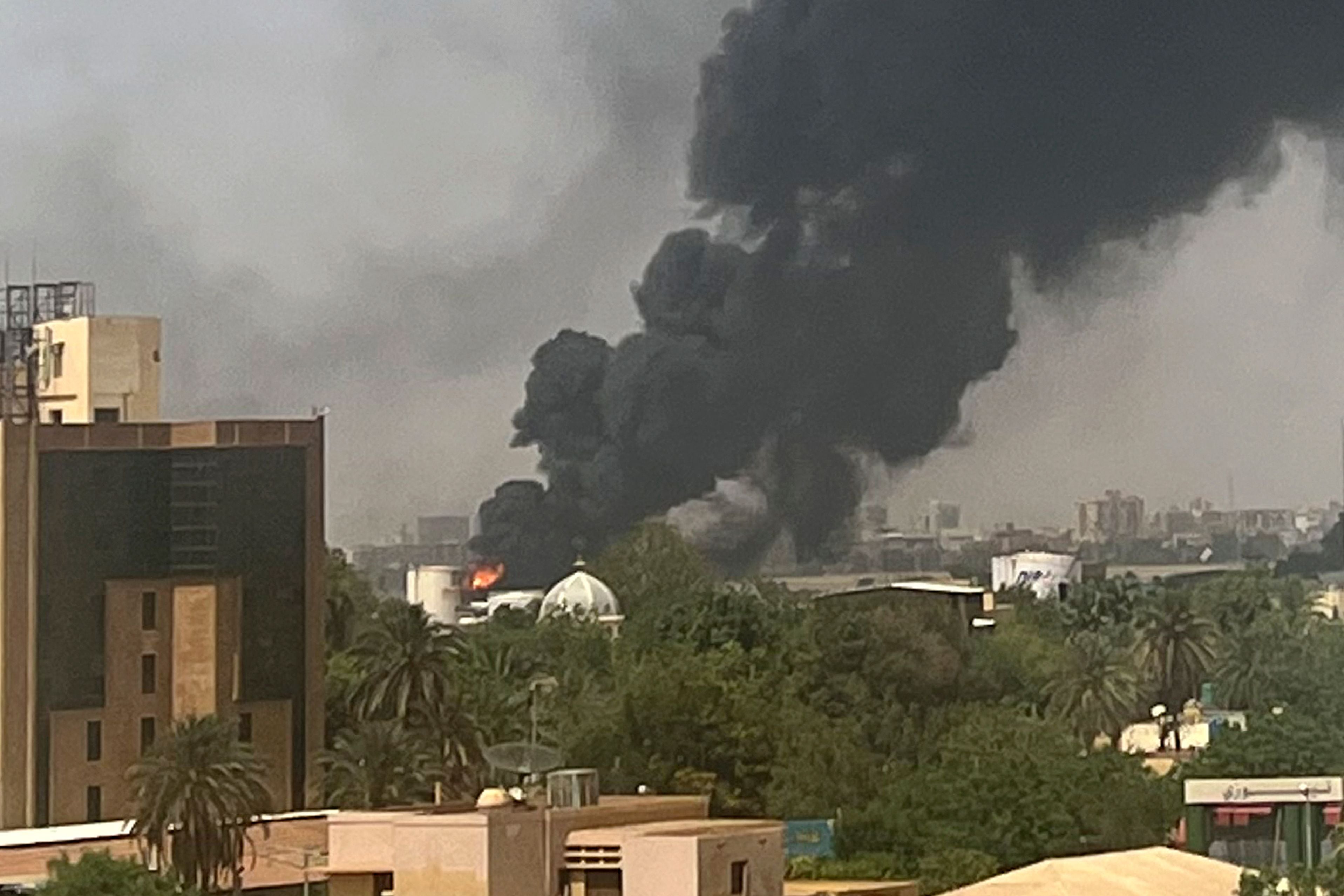
Your support helps us to tell the story
From reproductive rights to climate change to Big Tech, The Independent is on the ground when the story is developing. Whether it's investigating the financials of Elon Musk's pro-Trump PAC or producing our latest documentary, 'The A Word', which shines a light on the American women fighting for reproductive rights, we know how important it is to parse out the facts from the messaging.
At such a critical moment in US history, we need reporters on the ground. Your donation allows us to keep sending journalists to speak to both sides of the story.
The Independent is trusted by Americans across the entire political spectrum. And unlike many other quality news outlets, we choose not to lock Americans out of our reporting and analysis with paywalls. We believe quality journalism should be available to everyone, paid for by those who can afford it.
Your support makes all the difference.A British doctor trapped in Sudan has been shot in the leg as he “risked his life” to rescue his elderly mother, his daughter has revealed.
The doctor, who retired recently after working in the NHS for over 30 years, was visiting his family in Khartoum for Ramadan and Eid al-Fitr when fierce clashes between the country’s two top generals erupted in the city on 15 April.
His daughter and mother, who requires constant care, had been without water and electricity for five days at his brother’s house close to the airport, when he felt he had to move them to a safer place.
Speaking to The Independent, his daughter – a British doctor based in London – told how her father drove to the house at dusk last Thursday through the streets of the capital, past bodies strewn across the roads.
Calling herself Dr A to protect family in Sudan, she said: “They started shooting at the car first. My father kept going, but then he stopped because the shooting was coming from all directions.
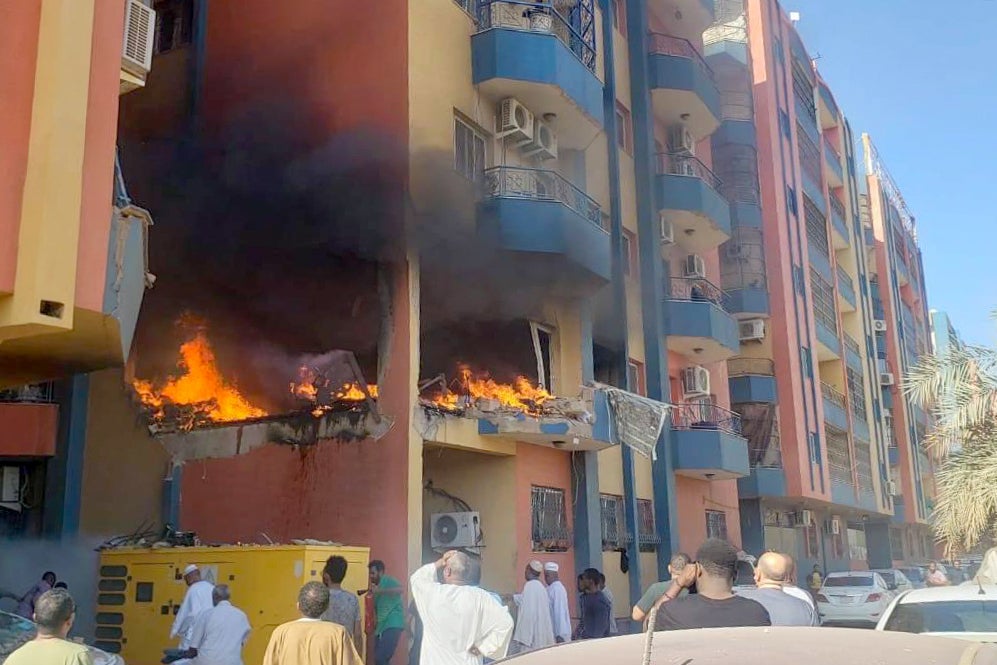
“When he got out he started to feel faint. He felt an intense heat on his leg, but because of his intense fear and adrenaline, he didn’t pay attention.”
She said Sudan’s paramilitary, the Rapid Support Forces (RSF), thought her father was a member of the Sudanese army because he was driving a Land Rover, a make of car often used by the national force.
He eventually convinced them he was just a medic trying to rescue his family and made it to his brother’s house, said Dr A. His second daughter – also a doctor – opened the door and noticed blood on his clothes.
They took him inside and dressed the wound, before making the dangerous journey back to the home where his mother usually lives.
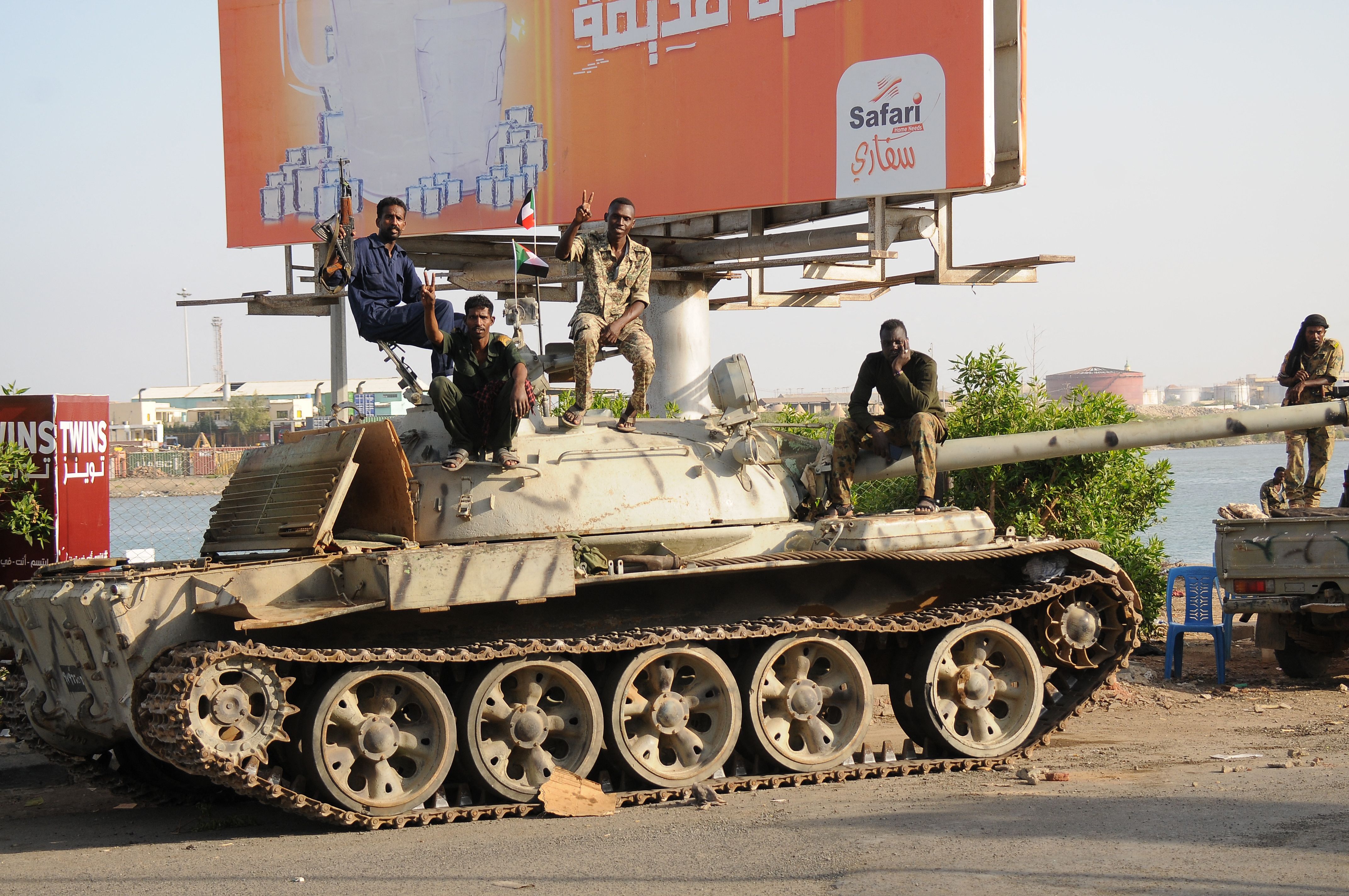
It has been too risky for any of them to get to a pharmacy or hospital, so Dr A’s sister in Khartoum has been forced to treat him at home with some leftover antibiotics.
Dr A, who is a British-Sudanese dual national like her father and sister, said: “He was shot in the thigh, so the wound is quite superficial. But the actual car has gunshots where the headrests and backrests are. If my dad had been in the wrong place at the wrong time, or even a slightly different position, then he would be dead.”
Her biggest concern is her family’s dwindling supply of food and medicines, and intermittent running water and internet connection.
Dr A, who also has extended family living in Sudan, said: “Everything is chaos. The situation in the country is very desperate.”
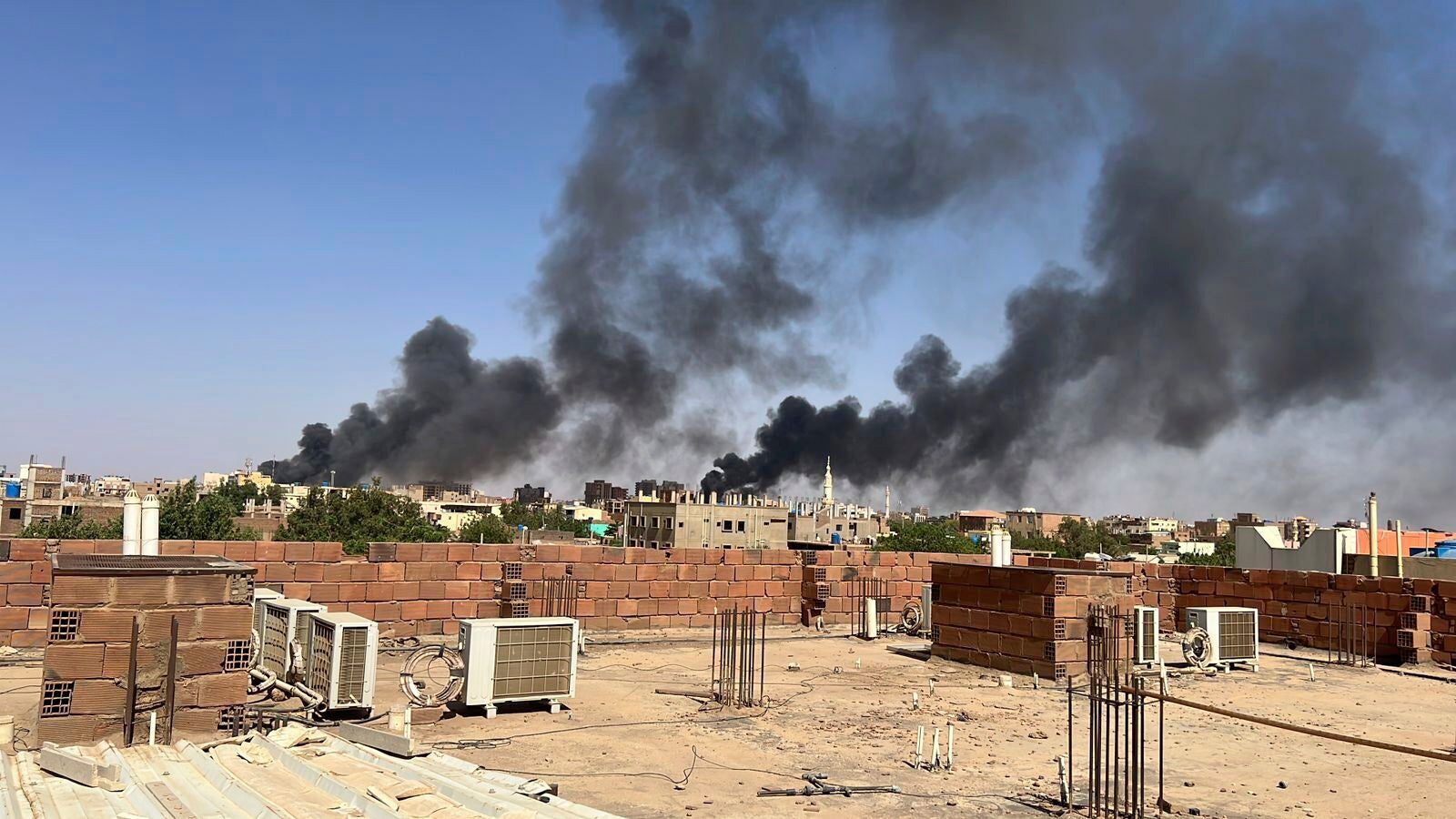
But despite the escalating violence and scant supplies, the British government and embassy has done little to help, she said.
She only spoke to someone from the Foreign Office on Saturday, a week after the fighting began, she said. Even then, they merely told her to register her family’s names on the list of people who need to be evacuated.
When Dr A asked about the plight of her grandmother who does not have dual citizenship, she was told to fill out a form but they could not guarantee a temporary visa.
This has made her family’s situation “particularly difficult” because “my dad cannot leave my grandmother”, she said.
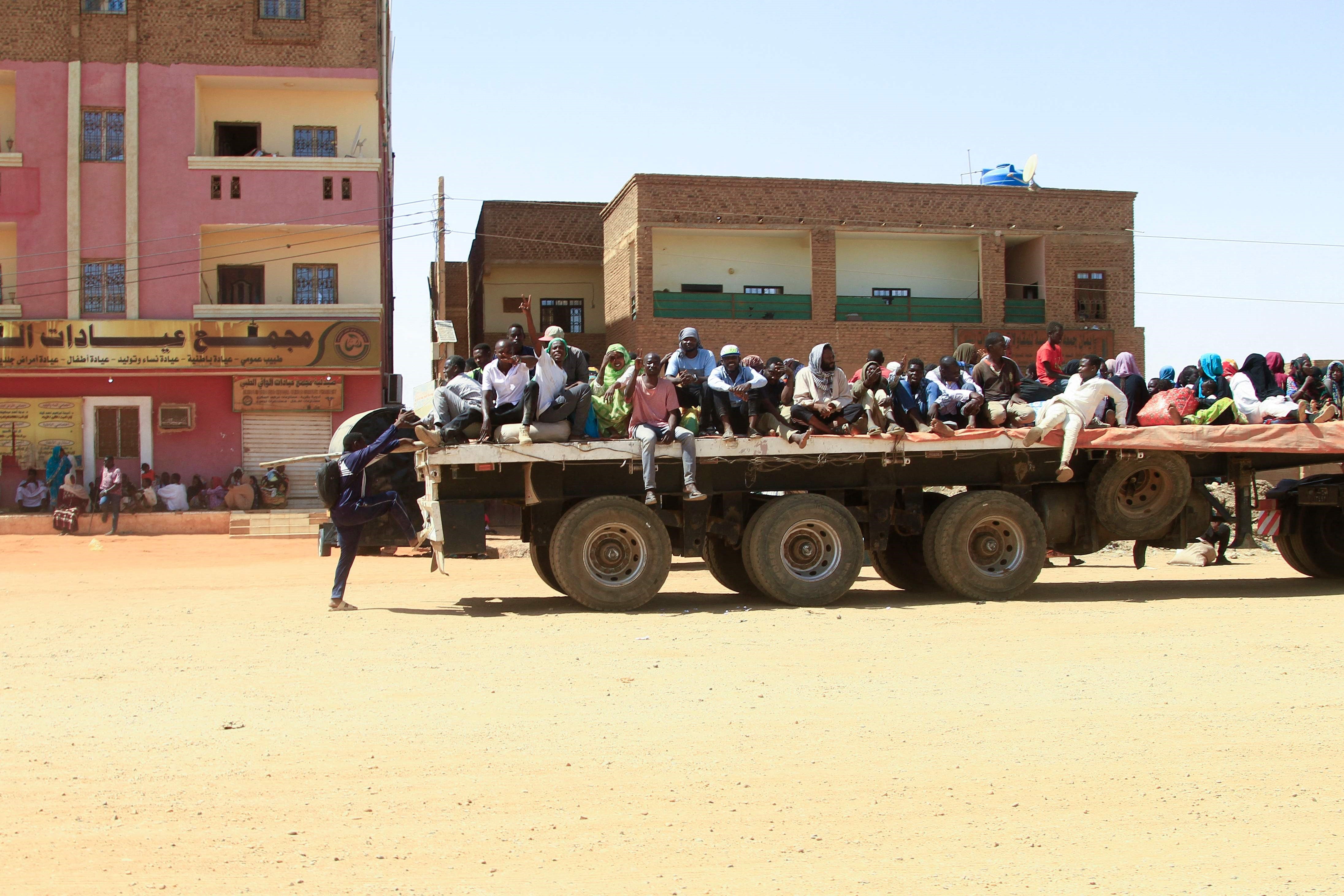
Dr A called the Foreign Office again on Monday morning and she said they did not know what was going to happen.
Up to 4,000 UK citizens are believed to be stranded in Sudan amid deadly street fighting and a shortage of food, water and electricity.
Meanwhile, British diplomats and their families were evacuated from the country in a “complex and rapid” operation overnight, said Prime Minister Rishi Sunak.
Warships RFA Cardigan Bay and HMS Lancaster are being prepared for an evacuation from Port Sudan, according to The Times.
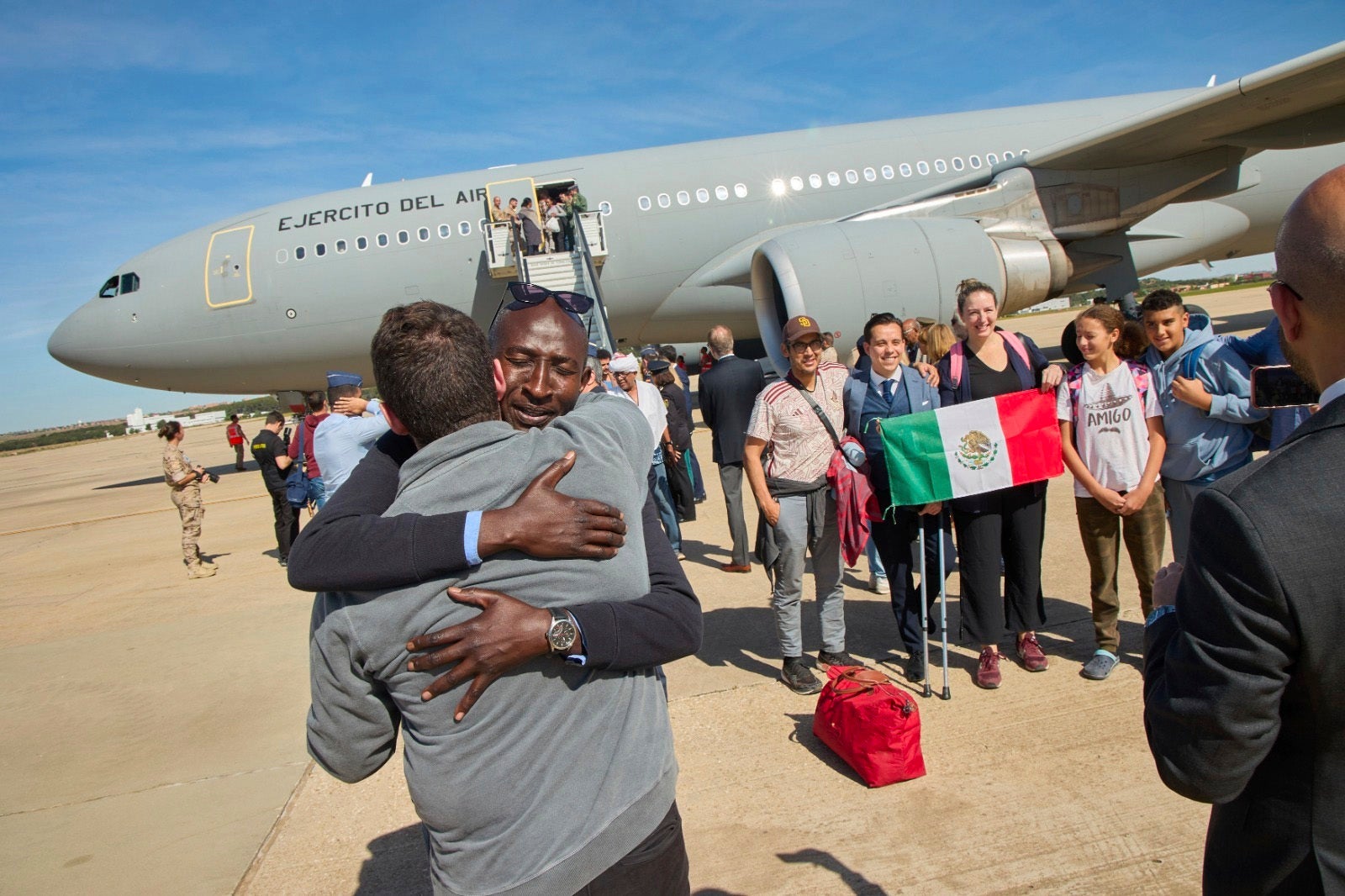
At the heart of the conflict are two generals: Sudanese army chief General Abdel-Fattah al-Burhan and RSF’s leader General Mohamed Hamdan Dagalo who initially joined forces in a coup in 2021 just two years after the ouster of long-term autocrat Omar al-Bashir.
The pair became heads of the country’s new ruling Sovereign Council. However, tensions spilled into violence as they clashed over details of a transition agreement to civilian rule that was supposed to be signed last month and would have seen RSF forces merged into the military.
More than 400 people have already been killed and thousands injured, according to the latest tally from the World Health Organization, while there are fears the true toll is much higher.
Dr A said: “The British government should’ve had a robust plan from the beginning – don’t remove diplomats and leave everyone else not knowing what happens next.
“We’ve been let down and abandoned by the British government. It’s very frustrating and makes you quite angry. If a country can’t protect its own citizens then who will?
“My father is a hardworking man who earned his citizenship and served in the NHS throughout the dangerous time of the pandemic. It’s a testament to him that he tried to save his mother and risked his life for it.”
A government spokesperson said: “The safety of all British nationals in Sudan continues to be our utmost priority. We recognise that this is an extremely worrying and distressing situation for those trapped by the fighting.
“We are urgently exploring all routes for British nationals to leave Sudan should they wish to.
“Our advice to British nationals continues to be to stay indoors wherever possible and contact the Foreign Office to register your local and contact details.”

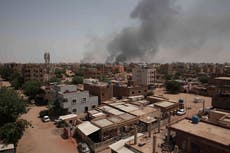

Join our commenting forum
Join thought-provoking conversations, follow other Independent readers and see their replies
Comments